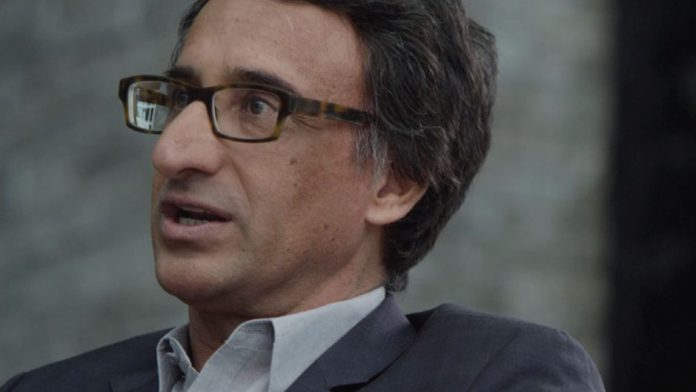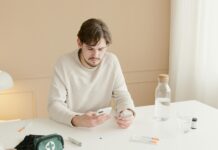Parminder Raina is a professor at McMaster University in the Department of Clinical Epidemiology & Biostatistics and the Director of the McMaster Institue on GeroScience. We asked him everything from what he is reading to what advice he would give to young researchers to give you a better understanding of what goes on outside the lab for one of the best minds in Canadian research.
What inspired you to become a scientist?
I guess part of it has been when I was growing up as a child, my father was quite engaged in asking provocative questions that always led my brother, sister and I to think about things critically, and that that got me interested in asking questions that usually required some sort of research activity – even when looking at worms on the ground and wondering why they are there. So that piqued my interest in science and research.
When I went to university, at one point in time, I thought I wanted to be a physician. I liked the biological side of it and became interested in questions of why and started delving myself more into the research side of things. And then through summer jobs and experiences like that, I charted the path of research and science.
What do you like most about being a scientist?
I like the freedom of thinking. I like taking on things that you don’t know where they will end up. Even though you use the scientific methods, you really have no idea. I like that you learn from your failures more than you learn from your successes, and how when success happens it’s very rewarding.
What do you envision as the future of your field?
There is a major demographic shift that is happening, not just in the developed world like Canada, but around the globe, especially in developing countries. It is expected that around the year 2050, we will be close to having between 1.5 to 2 billion people over the age of 65. To put it into perspective, that’s going to be the size of countries like China, or even bigger. The question is, what happens to cultures, societies, countries and systems as this population ages?
Research on aging, even though we have been doing it for many years, is relatively new. So in many ways you can say this research is in its late infancy to its childhood – it’s aging as the population is aging – so there are so many opportunities to understand the process of aging. It’s going to require some amazing interdisciplinary collaboration to sort things out like how disease processes differ from aging processes, and why some people age in a healthy fashion and others don’t, why some people go onto live to 100 or 110 years old and some people die at the age of 70 to 75. What are the differences in these biological, cultural and social environments? And I think that’s where I see the field of aging going. We are going to start integrating basic sciences with population and social sciences to understand the whole picture.
How will this research make a difference in our lives?
I think that for this research – at least the type of research that I’m involved in – the evidence has been generated to inform policy and practice. I believe that there are huge data gaps for policy-makers, decision-makers and clinical decision-makers, and that the type of data and type of evidence that we are going to be generating in the coming years is going to have direct applications to how we design services and programs that allow people to age in a healthy fashion.
What advice would you give to young researchers?
My advice to young researchers is don’t be afraid of failure. Take chances, be focused, and don’t step away because you’re worried about failing. There’s a lot more to be gained from some of those failed experiments, and that’s what allows you to grow as a scientist. Another piece of advice is don’t work just in your own discipline. Extend your reach to other disciplines and ask interesting cross-disciplinary research questions. Those are the questions that are going to have a huge impact.
What do you read?
I have a fairly broad repertoire and go through cycles of reading styles. I will focus on fiction for a long period of time and then I will go to non-fiction. Currently, I’m in a fiction mode of reading novels, reading from quite a variety of authors. I’m currently reading a book by a Turkish author, called Bonbon Palace.
What is on your iPod at the moment, or your CD collection or turntable?
My CD collection is very strange. It really depends on my mood. I listen to classical, jazz, rock, blues, bluegrass, world fusion, folk, and a lot of ethnic music. It’s hard for me to say what one particular thing is on my iPod since it’s a pretty wide variety, but I do like sounds that are esoteric and non-mainstream.
If you could meet any historical figure, who would it be and why?
I think that I would want to meet a historical figure like Gandhi or Mandela to learn what made them take on a cause and take them outside their comfort zone to fight an uphill battle. Not necessarily who they were as people, but what they did. What drove them? Did they think about whether they were going to achieve what they had, or were they just doing it hoping something would come out of it? What was the drive? What were they expecting? Did they get where they wanted to go? Did they reach it, or did they reach something else entirely?
If you could do any profession other than your own, what would it be?
I always wanted to make movies. I wanted to be a movie director, especially more of an editor of movies. I still might do that sometime in the future. I like how you put together different pieces of film to create a story, and how what form of direction of editing that you choose determines how compelling or not compelling the story could be. I want to create a compelling story. So in other words, I think if I had to do something all over, I’d like to be a storyteller, which is not so far from what I do now.
What do you like to do for fun?
I like to travel. I like to engage with younger people, I find that fun. I also like to try out foods from different parts of the world. I enjoy food that has high artistic value and sometimes see food as a piece of art rather than just something to eat. Not only the presentation, but the creative part of it. The taste of the food is less important than the journey of how it arrived there.
Want to learn more about Parminder Raina’s research? Check out his Orange Chair Interview on the science of aging.










































